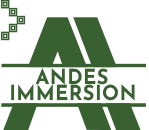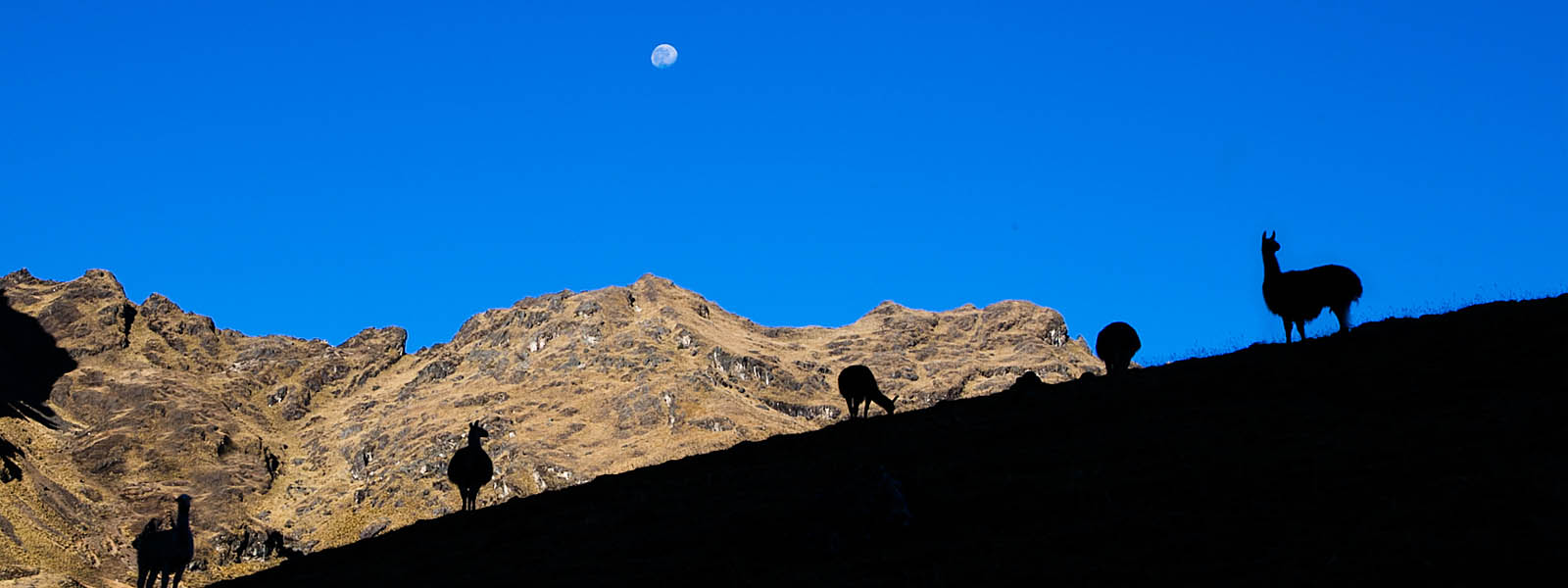
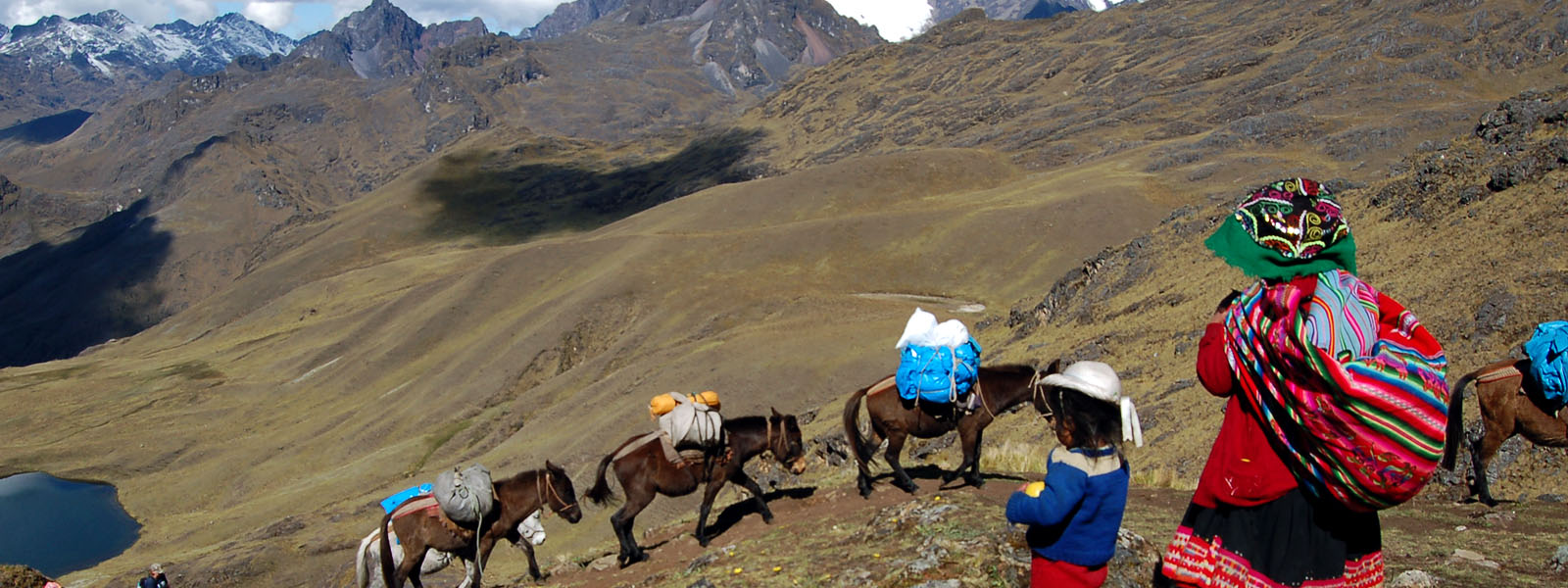
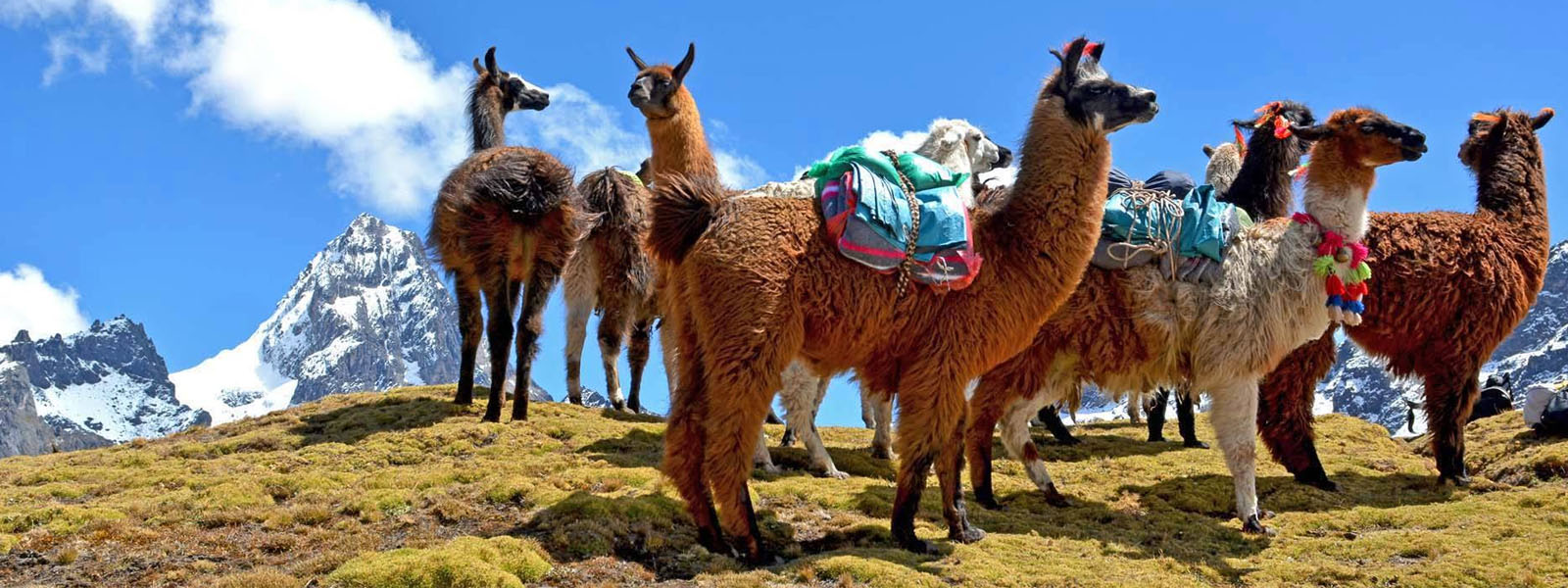



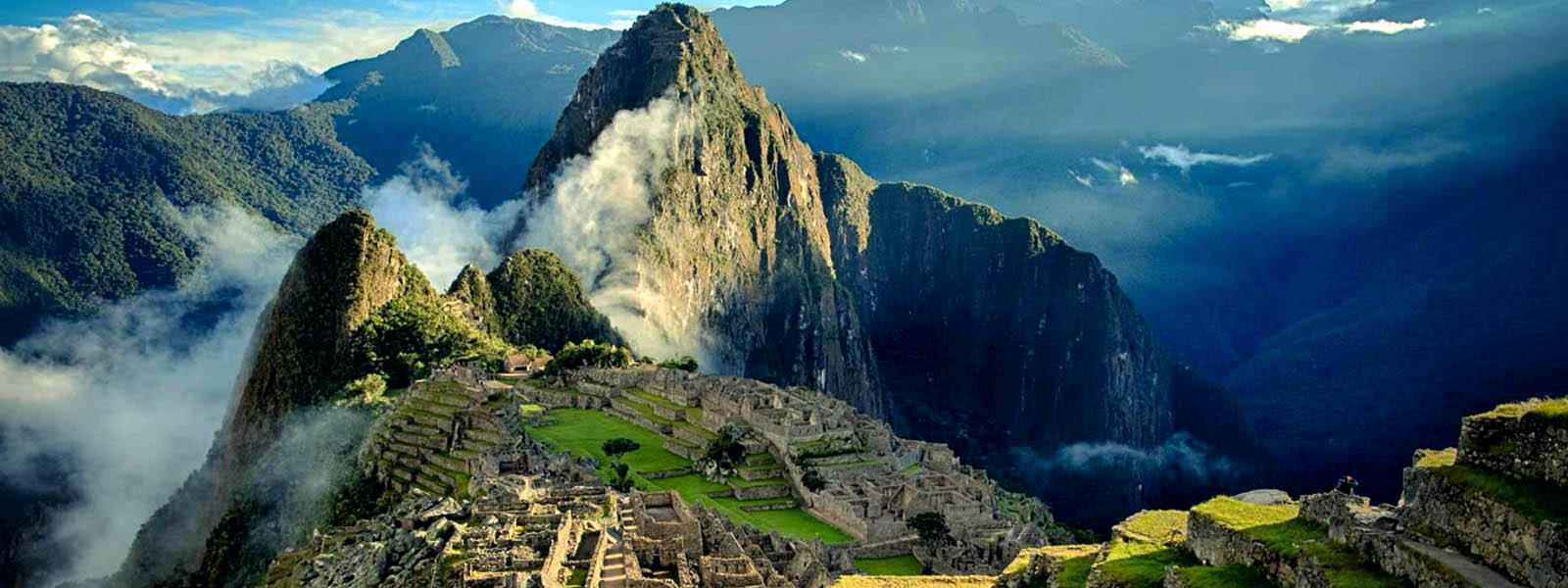
The Inca Trail is widely regarded as one of the top ten treks of the world, for its combination of Inca ruins, high passes, snow-capped mountains and ever changing ecosystems. As we hike you will learn about its history, flora and fauna with the help of our expert guides. Four days later, having walked 28 miles (40 km) and crossed passes up to 4200m you will reach the climax of this sacred pilgrimage, the wonderful of Machu Picchu.
Private Services:
These services are arranged just for you and your party, and offer the possibility to choose the departure date, the group size and the duration of the trek. This not only has the advantage of adapting the pace to your physical condition, but also usually means enjoying quieter campsites and meeting less travelers along the route. All private groups include additional services, such as extra porters/wranglers to carry your personal gear, among other benefits.
We pick you up from your selected hotel early in the morning and drive in our private vehicle through the Sacred Valley of the Incas for about one hour until the town of Calca, where we will make a brief stop to buy any last minute snacks and some presents for local people from the Andes mountains. From Calca, we continue for 2.5 hours by Andean roads with fabulous views of the Peruvian highlands until the town of Lares (3261 m / 10,696 ft). There is time for a soak in the thermo-medicinal hot springs before our trekking begins, with a ten kilometer walk on good path passing through groups of typical houses, where you will be charmed by the happy local children who always come out to meet us. The first camp will be out of Huacawasi, a small Quechua speaking community.
Early wake up with a hot drink in your tent after that you will enjoy breakfast before our challenge day begins, today after 4 hours up hill, we cross the Huacawasi Pass, located at 4665 m / 15,300 feet then, we will descend passing by the beautiful Aruraycocha lake until our lunch spot in the shadow of a high glacier. After lunch, the trail continues for about 4 – downhill until sacred valley camp passing bubbling brooks and traditional queuna forests along the way.
After an early breakfast we drive for 20 minutes to train station to board the train, a spectacular train ride takes us to KM104 and the start of our trail. We start by visiting the Chachabamba archaeological complex before three hours walk uphill to Wiñay Wayna another beautiful archaeological complex. We will have box lunch here before walking a further hour to the Sun Gate where we will have our first spectacular view of Machu Picchu. From here it is just 30 mins more until we are among the ruins of Machu Picchu and we then take a 30 mins bus ride down to the town aguas calientes where we stay.
After an early breakfast, we take the bus up to Machu Picchu, arriving well before the majority of tourists. You will have a guided tour of the site for two hours before having a bit of free time and making your way back on the bus to Aguas Calientes in time for some lunch before boarding the afternoon train back to sacred valley then a private transportstion back to Cusco to your selected hotel.
* Ticket For Huaynapicchu or Machupicchu Mountain. – For hikers who want to add a climb to Huaynapicchu mountain once you finished the tour at Machu Picchu tour, please let us know far in advance to secure spots… the cost of the ticket is US$ 80.00 pp extra.
Recommendations:
Our treks; Inca Trail, Salkantay trek, Ausangate, Lares trek, Choquequirao trek, etc. are moderately difficult, lengthy and traverse rough mountain terrain. We kindly recommend that if you want to immerse and hike the Andes to be in relatively good physical condition and acclimatization.
We suggest a regular and moderate exercise routine to improve endurance and stamina. Also, we suggest you arrive in Cusco at least two/ three days before your trek to allow yourself time to acclimatize. The more acclimatized you are the more you will enjoy the trek.
Altitude sickness is caused by ascending too rapidly, which doesn’t allow the body enough time to adjust to reduced oxygen and changes in air pressure. Symptoms include headache, vomiting, insomnia and reduced performance and coordination.
Arrive in Cusco at least 3 days prior your trek to have time to acclimatize, avoid rapid ascents specially on your first day and get enough sleep/rest. Drink plenty of fluids / water and stay hydrated is vital (coca tea, a local remedy). Eating light/ small meals will help your body digest food more efficiently at high altitudes. If you feel symptoms of altitude sickness, descend to a lower altitude immediately and rest until you feel better. Please consult your doctor if you have concerns about being at altitude. There are many medications that they can be provided.
Cusco’s climate is divided into two seasons: the rainy season, from November to March (the heaviest rains generally occur between January and March); and the dry season, from May to September.
Along the Inca Trail (May to September, high tourist season), temperatures range from 15° – 20ºC (59°F-68°F) during the day if it is sunny, and from 05-10ºC (41°F-50°F) during the day if it is not sunny and from 0-05ºC(32°F-41°F) during the night in between the first and second campsites. In Wiñaywayna and Machu Picchu, which is a subtropical zone, at a lower altitude, temperatures are usually warmer, although warm clothing is still recommended at night.
Temperature: Machu Picchu is located in a tropical cloud forest and rain is present throughout the year, even in the dry season months. The average temperature ranges between 54ºF and 75ºF (12ºC and 24ºC). On the hottest days, it is possible to reach 79ºF (26°C).
According to the Resolution #002-2004-UGM-CD, published on Nov 12, 2004, the Inca Trail Regulation that refers to Inca Trail space bookings, bookings will only be guaranteed by the governmental institutions when providing full names, nationalities and passport numbers of passengers, and when having paid the full amount for passengers and staff (cook and team of porters) entrance fees.
Due to the popularity of the Inca Trail, we highly recommend that you book as far in advance as possible in order to secure a place. There are only a limited number of permits issued per day. We do of course have many other exciting treks to should you be too late to secure a permit.
For hikers who want to add a climb to Huaynapicchu mountain once you finished the tour at Machu Picchu tour, please let us know far in advance to secure spots. There is a limit number of permits issued per day!
We water at our private transportation for all of our tours and boiled water along our treks. We insist on a “Leave no trace” tourism by implementing plastic-free tours. Everyone should carry their canteens to reduce the use disposable bottles. (Eco friendly Attitude, we provide the water and you bring the bottle!)
We always make sure to have the best equipment on our treks. On the basic trek, you will always find sleeping tents (double occupancy), dining tents (with tables, stools, and dining tools) and cooking tents (where our staff will prepare delicious meals).
Hiking pants and T-shirts are recommended during the day, complemented by sweaters, fleeces and waterproof jackets. It is very convenient to have light rain gear available in the daypack (rain poncho or jacket and/or rain pants) as the weather changes easily and rains can suddenly occur. At night, warm clothing is required in the first two campsites, down jackets can be useful, otherwise a fleece and a jacket. During the third day (if sunny) and in Machupicchu, convertible hiking pants are useful, as can be switched into shorts if necessary. Machupicchu has a warm climate, getting only cold at night. The rest of necessary implements are included in the Pack List.
We genuinely believe that when our staff is treated well and everyone is equipped with quality hiking equipment, clothing, and anything else they may need to do their job the very best they can, everyone wins. If you have equipment or clothing you may not use again, you can donate it to a porter! Headlamps, sleeping bags, trekking poles, clothing are all greatly appreciated.
Certainly, any baggage that is not necessary for your trek may be stored in your hotel in Cusco (most hotels offer this service free of charge). However, In the case that your hotel may not provide this service, we will store your baggage safely in our office free of charge.
Nowadays, we are all concerned about the environment and care of Mother Nature (Pachamama), we understand the potential harm that can come from taking groups through many of the delicate environments, we are licensed operators and we do insist in a policy of …” “Leave no trace tourism”. our tours are plastic-free; everyone should carry their canteens to stop using disposable bottles.
Please ensure you have adequate travel insurance to cope with any medical emergencies, any costs incurred due to delayed or cancelled flights and for loss or delay of baggage.
People visiting Peru can buy travel health plans to protect themselves and their traveling companions from large out-of-pocket expenses due to unforeseen injury or illness. Although health concerns are the primary reason people purchase trip insurance for Peru. we recommend World Nomads™ – Travel Insurance Peru
